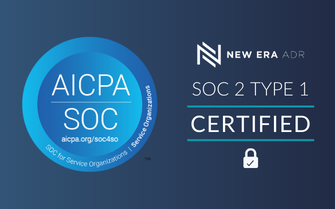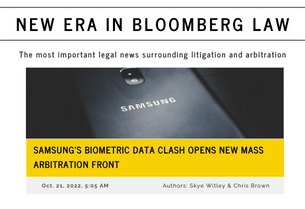
In this article we discuss e-commerce disputes and how to overcome the perceived bias by citing eBay’s model as an example.
The Secondhand Apparel Market is Rapidly Growing
Secondhand retail and an increased awareness of the environmental impact of the fashion industry have combined to make resale sites more popular than ever. According to ThredUp’s 2022 Resale Report, the global secondhand apparel market is expected to grow 3X faster than the global apparel market overall. Secondhand is becoming a global phenomenon, expected to Grow 127% by 2026. [Citation: https://www.thredup.com/resale/]
For all the positives of e-commerce, there are some significant downsides. What happens if you purchase what you understand to be a designer item online, only to discover it is a factory-second when it arrives?
eBay Foresaw Disputes Between Parties
In the mid-1990s, when e-mail was changing communication, e-Bay bounded onto the scene giving all kinds of items new ownership. Goods sold via online bidding was a novel concept, and also ripe for disputes. eBay acknowledged the inevitability of clashes between sellers, buyers and the company. In response, eBay developed their own online dispute resolution (ODR) system. [Citation: https://resolutioncenter.ebay.com/]
eBay Developed a Homegrown ODR Process
eBay’s ODR process goes like this:
(a) users are encouraged to contact the other user in an effort to amicably resolve the dispute;
(b) if an amicable resolution cannot be reached, the aggrieved user can file a claim with eBay’s resolution center;
(c) eBay’s conflict resolution center acts as a de facto mediator and endeavors to bring parties to come to a mutually agreeable resolution;
(d) if no resolution is reached, the process continues and eBay attempts to issue a decision on the issue within 48 hours;
(e) if the buyer loses the decision, they have thirty days to appeal, at which point eBay reconsiders the decision and issues its final decision within forty-eight hours.
eBay Uses NetNeutrals, But Only for Feedback Disputes
eBay also uses NetNeutrals, a third party that solely mediates disputes related to feedback on orders. The parties can negotiate a settlement by themselves over the platform, or they can pay NetNeutrals for a neutral who will render a decision based on eBay’s terms and conditions and the user conduct at issue. The neutral then determines whether the feedback was warranted or inappropriate given the circumstances.
Bias in E- Commerce Disputes, How it is Created
While eBay is clearly an innovator in digital dispute resolution, their model still raises one inherent issue, and that’s bias. E-Commerce marketplaces are only successful if there are almost equal levels of supply and demand. When consumers use e-commerce sites, many are solely buyers or solely sellers. This creates two general groups that the company targets. When inventory is low, an e-commerce marketplace may need to persuade additional sellers to join the site. When inventory is high and items are not selling, the marketplace may need to employ marketing directed at increasing the number of buyers coming to the site.
The idea that an e-commerce marketplace may be biased towards one group is not inherently incorrect. Accordingly, a buyer who loses one or two appeals begins to believe that eBay is biased towards sellers. Conversely, a seller who loses one or two appeals likely believes that eBay is biased towards buyers. That bias is hard to unwind and creates a general mistrust of the e-commerce marketplace in future transactions.
Feedback Disputes Only Account for 10% or Less of Total Disputes
Employing NetNeutrals as a third party does remove this bias as NetNeutrals has no stake in the supply/demand balance of the marketplace. But NetNeutrals only adjudicates feedback disputes. While plentiful, feedback disputes probably still only account for 10% or less of the total disputes in an e-commerce marketplace.
Solution – Third Party Dispute Resolution Services
As such, it seems the most logical solution for e-commerce disputes is to employ a third-party dispute resolution provider that handles all platform disputes, not just ones related to feedback. The presence of an uninvolved, neutral third-party removes the specter of bias. And if the provider is able to handle volume, and deploy experienced neutrals who can understand the facts and issue quick decisions, the organization can also alleviate demands on the marketplace’s customer service team. These factors combined make the relationship a clear win-win for the marketplace and its users, especially in a rapidly growing industry.
Learn more about how New Era ADR helps businesses overcome bias in e-commerce disputes with neutral third-party resolution services and solutions.
Subscribe to New Era ADR’s Monthly Newsletter

Alex is a legal tech marketer with a decade of experience in sales, business development, and marketing. She has worked with companies such as Citrix, TCDI, and the North Carolina Chamber. Alex holds a BSBA in Management with a Concentration in Entrepreneurship from Appalachian State University.
Alex lives in Raleigh, NC with her husband, and together they can be found chasing around their two children and two dogs.




